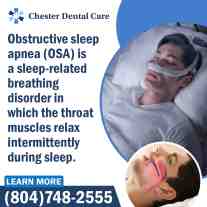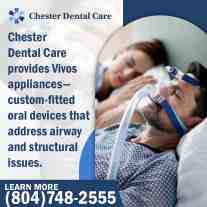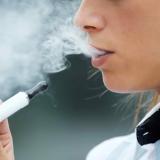At Chester Dental Care, we regularly meet patients who are frustrated by persistent snoring, often unaware that it may signal something more serious. In many cases, chronic snoring is linked to Obstructive Sleep Apnea (OSA). This sleep-related breathing disorder disrupts airflow during sleep. As the muscles in the back of the throat relax, the airway can narrow or collapse entirely, causing repeated pauses in breathing throughout the night. These interruptions disturb sleep, reduce oxygen levels, and strain the body’s systems over time. Left untreated, OSA is associated with serious health risks, including hypertension, heart disease, and diabetes. That’s why we offer targeted treatments for snoring that address both the symptoms and root causes of airway obstruction. Understanding how OSA works is the first step in choosing the right solution for healthier sleep.
Key Takeaways
Obstructive sleep apnea (OSA) causes repeated airway blockages during sleep, which often leads to loud snoring and disrupted rest.
Recognizing common warning signs like loud snoring, gasping for air, and morning headaches is essential for seeking effective treatments for snoring.
Lifestyle changes such as weight loss, avoiding alcohol, quitting smoking, and changing sleep positions are some of the natural treatments for snoring that help reduce OSA severity.
Chester Dental Care offers oral appliances, including Vivos devices, as comfortable and effective treatments for snoring and mild to moderate sleep apnea.
Early diagnosis and tailored treatments for snoring improve sleep quality and lower health risks linked to untreated obstructive sleep apnea.
Real-Life Examples to Watch for With Obstructive Sleep Apnea
1. Loud Snoring and Daytime Fatigue:
You or a loved one snores loudly every night, and you often feel exhausted during the day despite getting enough hours of sleep.
2. Frequent Morning Headaches and Mood Changes:
You regularly wake up with headaches and notice increased irritability or trouble concentrating throughout the day.
3. Waking Up with Dry Mouth or Sore Throat:
You often wake up with a dry mouth or sore throat, even if you don’t have allergies or other obvious causes.
4. Pauses in Breathing Noticed by Others:
A bed partner, family member, or friend notices that you stop breathing or gasp for air during sleep.
5. Risk Factors Present Without Clear Symptoms:
You have health issues such as high blood pressure, hypothyroidism, or a large neck circumference, but haven’t noticed snoring or daytime tiredness.
Who Is at Risk for Obstructive Sleep Apnea?
Individuals at the highest risk for OSA include adults over 40, men, and those who are overweight. However, the condition affects a broader population than commonly believed. Risk increases with certain anatomical and lifestyle factors. According to the American Academy of Sleep Medicine, over 22 million Americans have sleep apnea, and up to 80% of cases go undiagnosed (Source: https://aasm.org/new-national-indicator-report-details-importance-prompt-sleep-apnea-diagnosis-treatment/).
Additional risk indicators include:
Neck circumference: Men with necks 17 inches or larger and women with necks 16 inches or more are more likely to experience airway restriction.
Family history: Genetics plays a role in upper airway structure and muscle tone, increasing susceptibility.
Alcohol and sedative use: These substances relax throat muscles and reduce the brain’s arousal response to apnea events.
Nasal congestion or anatomical differences: Deviated septum, enlarged tonsils, or small jaw structure can all restrict airflow.
We also see increased OSA prevalence among postmenopausal women, smokers, and individuals with endocrine disorders like hypothyroidism. At Chester Dental Care, we work with patients of all backgrounds and assess both lifestyle and anatomical risk factors to provide appropriate guidance in the form of snoring treatments.

Warning Signs of OSA: You Shouldn't Ignore
Loud, chronic snoring and daytime fatigue are the most recognizable signs of OSA. These symptoms often go unnoticed by the person affected but may be reported by partners or family members.
Other Signs of Obstructive Sleep Apnea
Beyond loud snoring, several other signs may indicate obstructive sleep apnea (OSA). Recognizing these symptoms can help prompt timely medical evaluation and treatment.
Gasping or Choking During Sleep
Gasping or choking sounds while sleeping signal the body’s effort to reopen a blocked airway. When throat muscles relax excessively, the airway collapses, causing brief pauses in breathing. The brain senses oxygen deprivation and triggers a reflex to resume breathing, often with a sudden gasp or choking sensation. These events disrupt sleep and contribute to poor rest quality.
Morning Headaches
Waking up with headaches is common among those with untreated OSA. These headaches result from reduced oxygen levels and disrupted sleep cycles. Oxygen deprivation causes blood vessels in the brain to dilate, leading to head pain. Additionally, frequent awakenings prevent restorative sleep phases, intensifying morning headaches.
Dry Mouth or Sore Throat Upon Waking
Many with OSA breathe through their mouth at night due to restricted nasal airflow. Mouth breathing dries out oral tissues, resulting in dry mouth or a sore throat upon waking. This discomfort can also increase the risk of dental problems like tooth decay and gum disease.
Difficulty Concentrating or Mood Disturbances
Poor sleep quality and low oxygen levels affect brain function, leading to trouble concentrating, memory problems, irritability, and mood swings. Daytime fatigue caused by fragmented sleep can also worsen emotional regulation and mental alertness.
Restless Sleep or Insomnia
Frequent nighttime awakenings due to breathing interruptions often cause restless sleep or insomnia. People may toss and turn, struggling to stay asleep or fall back asleep,
which further reduces sleep quality.
Witnessed Breathing Pauses During Sleep
Observing pauses in breathing during sleep is a key sign of OSA. Bed partners often notice these episodes, which are caused by airway blockages lasting 10 seconds or more. These pauses require medical evaluation as they indicate disrupted breathing and increased health risks.
Ignoring these signs can have serious consequences. At Chester Dental Care, we encourage patients to treat snoring as a potential medical concern, not just a bedtime annoyance. Early intervention improves long-term outcomes and may reduce dependence on more invasive snoring treatments later on.
Why Untreated OSA Poses Serious Health Risks
If left untreated, OSA can increase the risk of life-threatening conditions like heart disease, stroke, and type 2 diabetes. The frequent oxygen drops and sleep disturbances put stress on the cardiovascular and metabolic systems.
Long-term risks include:
Studies show that individuals with untreated OSA face a 140% higher risk of heart failure. (Source: https://www.sleepfoundation.org/sleep-apnea/sleep-apnea-linked-heart-disease).
Elevated stroke risk from repeated blood pressure spikes during apnea events
Increased chance of motor vehicle accidents due to daytime drowsiness and impaired alertness
Cognitive decline and memory loss from chronic sleep fragmentation
Higher likelihood of weight gain and insulin resistance from hormonal imbalances triggered by poor sleep
We emphasize the importance of early treatment because many of these risks can be reduced or reversed with intervention. By addressing snoring and sleep disruption early, we help our patients protect both their daily well-being and long-term health.
When to Seek Help for Snoring and Sleep Concerns
You should seek medical evaluation if you snore loudly, feel excessively tired during the day, or if someone has noticed you stop breathing during sleep. These signs are more than just an inconvenience—they may point to a serious sleep disorder.
Ignoring these symptoms often delays diagnosis and increases the risk of complications. We recommend that patients visit our dental office for an airway evaluation. We can then refer you for sleep testing or coordinate care with specialists as needed.
Early diagnosis allows for more effective, less invasive treatments for snoring. It also gives you the chance to adopt healthier habits and begin lifestyle changes that support better sleep. At Chester Dental Care, the trusted dentist in Chester, VA, we’re proactive in helping patients recognize and respond to the warning signs of sleep-disordered breathing.
How We Treat OSA with Non-CPAP Options
At Chester Dental Care, we provide treatments for snoring and mild to moderate obstructive sleep apnea (OSA) using oral appliances that support the airway during sleep. One of our most effective solutions is the Vivos appliance system.
Our non-CPAP treatment offerings include:
Vivos oral appliances: These devices gently reposition the jaw and tongue to open the airway. They also promote jaw development and correct structural issues that contribute to sleep-disordered breathing. Vivos appliances are particularly helpful for patients with underdeveloped jaws or misaligned teeth.
Custom nightguards: Designed for patients with mild symptoms, these reposition the lower jaw to maintain airflow throughout the night.
NightLase®: Fotona’s NightLase® therapy is a non-invasive, patient-friendly laser treatment that improves sleep quality. NightLase reduces the effects of sleep apnea and decreases the intensity of snoring through a gentle laser-induced tightening effect. This process contracts collagen in the oral mucosa tissue, tightening the airway passages to promote better airflow during sleep.
Myofunctional therapy: This is a non-invasive approach that uses targeted exercises to strengthen the tongue, mouth, and facial muscles. Correcting habits like mouth breathing, low tongue posture, and improper swallowing helps improve airway function and promote nasal breathing. At Chester Dental Care, we incorporate myofunctional therapy as part of our treatments for snoring, especially when poor muscle tone contributes to airway obstruction during sleep. This therapy supports long-term relief by addressing the root causes of snoring rather than just the symptoms. It’s especially effective when combined with oral appliances or other dental sleep solutions tailored to each patient’s needs.
These alternatives are ideal for patients who find CPAP therapy uncomfortable or impractical. Oral appliances and treatments like NightLase are discreet, portable, and easy to use, making them a preferred option for many patients seeking snoring treatments without the need for a mask or machine.
Lifestyle Changes and Natural Snoring Remedies
We often recommend lifestyle modifications alongside oral appliances to enhance treatment outcomes and address the underlying causes of OSA. These changes support better breathing and sleep quality.
Weight Loss
Excess body weight, particularly fat around the neck, narrows the airway and increases the likelihood of airway collapse during sleep. Losing weight reduces fat deposits around the throat, improving airflow and lowering OSA severity. Studies show that even a modest weight loss of 10 to 15 pounds can lead to noticeable improvements in breathing during sleep. (Source:https://www.healthline.com/health/sleep-apnea/sleep-apnea-weight-loss) Weight loss also decreases the burden on the cardiovascular system, reducing associated health risks.
Avoiding Alcohol and Sedatives
Alcohol and sedative medications relax the muscles of the throat, which can increase airway collapsibility. Drinking alcohol close to bedtime worsens snoring and sleep apnea symptoms by reducing the brain’s responsiveness to breathing interruptions. Avoiding these substances, especially in the evening, helps maintain muscle tone in the airway and prevents obstruction.
Changing Sleep Position
Sleeping on the back can cause the tongue and soft tissues to fall backward, blocking the airway. Shifting to side sleeping keeps the airway more open, reducing snoring and apnea episodes. Positional therapy, including special pillows or devices, can assist patients in maintaining side sleep positions to improve airflow.
Quitting Smoking
Smoking inflames and irritates the airway tissues, causing swelling and increased mucus production. These changes narrow the airway and raise the risk of collapse during sleep. Quitting smoking reduces inflammation and helps restore normal airway function, improving breathing at night.
Maintaining a Regular Sleep Schedule
Consistent sleep and wake times regulate the body’s internal clock, promoting better quality sleep. A regular schedule supports the natural rhythm of breathing patterns and helps the body enter restorative sleep stages. This stability reduces the chances of sleep fragmentation, often caused by apnea events.
We also offer guidance on snoring treatment exercises, such as tongue and throat exercises that improve muscle tone. Some patients benefit from certain approaches that promote natural treatment for snoring, like saline nasal rinses, herbal sprays, or positional therapy devices. Our team helps patients explore these options in tandem with clinical care.
For those interested in snoring treatment at home, we provide custom recommendations that support better airway health and sleep hygiene. These include breathing exercises, dietary tips, and guidance on managing nighttime allergies or reflux.

Frequently Asked Questions
What are the most common treatments for snoring?
Treatments for snoring include lifestyle changes, oral appliances like Vivos devices, positional therapy, and natural methods such as snoring treatment exercises.
Can snoring treatment at home be effective?
Snoring treatment at home can be effective through weight management, sleep position changes, and natural snoring treatment exercises, but persistent symptoms may require professional evaluation.
How do oral appliances help with snoring?
Oral appliances reposition the jaw and tongue to keep the airway open during sleep, making them a popular treatment for snoring, especially for mild to moderate cases. At Chester Dental Care, we offer custom oral appliances through the Vivos System, which help reduce snoring and also address the structural causes of airway obstruction for long-term improvement.
Are there options for the natural treatment of snoring?
Yes, natural treatment snoring options include lifestyle changes, breathing exercises, and avoiding alcohol or sedatives before bedtime, which can reduce snoring intensity.
When should I seek professional treatments for snoring?
You should consider professional treatments for snoring if snoring is loud, frequent, or accompanied by breathing pauses, daytime sleepiness, or other symptoms indicating possible sleep apnea. At Chester Dental Care, we evaluate these symptoms carefully and offer personalized solutions—to help patients sleep better and protect their long-term health.
We're Here to Help You Sleep Better
At Chester Dental Care, we take a personalized approach to treatments for snoring and sleep apnea. Our goal is to provide safe, effective, and patient-friendly solutions that improve your sleep, health, and daily life.
We encourage anyone experiencing loud snoring, daytime fatigue, or suspected breathing pauses during sleep to contact us for a consultation. Our team will evaluate your airway, discuss your symptoms, and help you take the next steps toward better sleep.
If you’ve been searching for effective snoring treatments that work without relying on machines, or if you’re interested in natural treatment for snoring methods, we’re ready to help. With the right diagnosis and care plan, a good night's sleep is possible—and it starts with a conversation.
Give us a call at (804) 748-2555 or email us at frontdesk@chesterdentalcareva.com to schedule a consultation. At Chester Dental Care, we’ll work with you to improve your sleep health and help you wake up feeling rested again.



